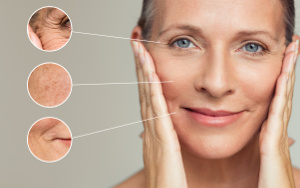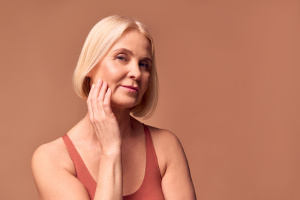afterLoad (456.22KB) (2.35ms)
afterInitialise (1.27MB) (51.56ms)
afterRoute (840.55KB) (14.05ms)
beforeRenderComponent com_tags (20.75KB) (215μs)
afterRenderComponent com_tags (1.31MB) (70.56ms)
afterDispatch (27.39KB) (4.73ms)
beforeRenderRawModule mod_articles_category (READ MORE...) (439.86KB) (21.64ms)
Before Access::preloadComponents (all components) (50.9KB) (4.42ms)
After Access::preloadComponents (all components) (103.05KB) (1.19ms)
Before Access::getAssetRules (id:8 name:com_content) (840B) (15μs)
After Access::getAssetRules (id:8 name:com_content) (7.05KB) (34μs)
afterRenderRawModule mod_articles_category (READ MORE...) (18.95KB) (118ms)
beforeRenderRawModule mod_custom (BOOST YOUR IMMUNE DEFENSE) (6.45KB) (29μs)
afterRenderRawModule mod_custom (BOOST YOUR IMMUNE DEFENSE) (3.8KB) (166μs)
beforeRenderRawModule mod_tags_popular (Search) (2.36KB) (15μs)
afterRenderRawModule mod_tags_popular (Search) (41.82KB) (277ms)
beforeRenderRawModule mod_custom (Get additionel and more detailed knowledge ) (816B) (27μs)
afterRenderRawModule mod_custom (Get additionel and more detailed knowledge ) (1.55KB) (50μs)
beforeRenderRawModule mod_custom (Overview of vitamins, minerals, and essential fatty acids) (768B) (11μs)
afterRenderRawModule mod_custom (Overview of vitamins, minerals, and essential fatty acids) (960B) (24μs)
beforeRenderRawModule mod_custom (Q10 goes by many names) (608B) (9μs)
afterRenderRawModule mod_custom (Q10 goes by many names) (928B) (20μs)
beforeRenderRawModule mod_custom (Check this before you buy a Q10 product) (752B) (8μs)
afterRenderRawModule mod_custom (Check this before you buy a Q10 product) (944B) (19μs)
beforeRenderRawModule mod_custom (Are you taking supplements) (736B) (9μs)
afterRenderRawModule mod_custom (Are you taking supplements) (1.03KB) (18μs)
beforeRenderRawModule mod_custom (Weight loss that works) (736B) (9μs)
afterRenderRawModule mod_custom (Weight loss that works) (1.03KB) (3.01ms)
beforeRenderRawModule mod_custom (Antiaging) (720B) (31μs)
afterRenderRawModule mod_custom (Antiaging) (912B) (42μs)
beforeRenderRawModule mod_menu (Are you getting enough vitamins and minerals?) (2.5KB) (13μs)
afterRenderRawModule mod_menu (Are you getting enough vitamins and minerals?) (22.39KB) (1.35ms)
beforeRenderRawModule mod_menu (The key to increased well-being) (736B) (18μs)
afterRenderRawModule mod_menu (The key to increased well-being) (17.83KB) (241μs)
beforeRenderRawModule mod_menu (Did you know.....) (720B) (18μs)
afterRenderRawModule mod_menu (Did you know.....) (25.52KB) (283μs)
beforeRenderRawModule mod_custom (Useful Links) (1.06KB) (1.08ms)
afterRenderRawModule mod_custom (Useful Links) (1.02KB) (40μs)
beforeRenderRawModule mod_custom (Chronic fatigue tied Alan to his bed but Q10 capsules saved him:) (244.28KB) (6.65ms)
afterRenderRawModule mod_custom (Chronic fatigue tied Alan to his bed but Q10 capsules saved him:) (1.06KB) (41μs)
beforeRenderModule mod_custom (Chronic fatigue tied Alan to his bed but Q10 capsules saved him:) (768B) (5μs)
afterRenderModule mod_custom (Chronic fatigue tied Alan to his bed but Q10 capsules saved him:) (1.3KB) (59μs)
beforeRenderRawModule mod_custom (Cholesterol-lowering without side effects:) (368B) (13μs)
afterRenderRawModule mod_custom (Cholesterol-lowering without side effects:) (1.06KB) (23μs)
beforeRenderModule mod_custom (Cholesterol-lowering without side effects:) (752B) (2μs)
afterRenderModule mod_custom (Cholesterol-lowering without side effects:) (1.28KB) (31μs)
beforeRenderModule mod_articles_category (READ MORE...) (20.82KB) (3.7ms)
afterRenderModule mod_articles_category (READ MORE...) (1.25KB) (51μs)
beforeRenderModule mod_custom (BOOST YOUR IMMUNE DEFENSE) (6.81KB) (15μs)
afterRenderModule mod_custom (BOOST YOUR IMMUNE DEFENSE) (1.28KB) (26μs)
beforeRenderModule mod_tags_popular (Search) (1.98KB) (12μs)
afterRenderModule mod_tags_popular (Search) (1.27KB) (22μs)
beforeRenderModule mod_custom (Get additionel and more detailed knowledge ) (1.17KB) (10μs)
afterRenderModule mod_custom (Get additionel and more detailed knowledge ) (1.3KB) (21μs)
beforeRenderModule mod_custom (Overview of vitamins, minerals, and essential fatty acids) (384B) (9μs)
afterRenderModule mod_custom (Overview of vitamins, minerals, and essential fatty acids) (1.31KB) (21μs)
beforeRenderModule mod_custom (Q10 goes by many names) (208B) (8μs)
afterRenderModule mod_custom (Q10 goes by many names) (1.27KB) (21μs)
beforeRenderModule mod_custom (Check this before you buy a Q10 product) (352B) (8μs)
afterRenderModule mod_custom (Check this before you buy a Q10 product) (1.28KB) (20μs)
beforeRenderModule mod_custom (Are you taking supplements) (352B) (8μs)
afterRenderModule mod_custom (Are you taking supplements) (1.28KB) (20μs)
beforeRenderModule mod_custom (Weight loss that works) (336B) (9μs)
afterRenderModule mod_custom (Weight loss that works) (1.27KB) (19μs)
beforeRenderModule mod_custom (Antiaging) (336B) (9μs)
afterRenderModule mod_custom (Antiaging) (3.77KB) (21μs)
beforeRenderModule mod_menu (Are you getting enough vitamins and minerals?) (2.13KB) (11μs)
afterRenderModule mod_menu (Are you getting enough vitamins and minerals?) (1.3KB) (1.48ms)
beforeRenderModule mod_menu (The key to increased well-being) (352B) (20μs)
afterRenderModule mod_menu (The key to increased well-being) (1.28KB) (37μs)
beforeRenderModule mod_menu (Did you know.....) (336B) (13μs)
afterRenderModule mod_menu (Did you know.....) (1.27KB) (23μs)
beforeRenderModule mod_custom (Useful Links) (1.44KB) (10μs)
afterRenderModule mod_custom (Useful Links) (1.27KB) (21μs)
beforeRenderRawModule mod_menu (Main Menu - English) (25.14KB) (5.79ms)
afterRenderRawModule mod_menu (Main Menu - English) (186.95KB) (2.42ms)
beforeRenderModule mod_menu (Main Menu - English) (720B) (4μs)
afterRenderModule mod_menu (Main Menu - English) (4.86KB) (52μs)
beforeRenderRawModule mod_languages (Sprogskift) (3.94KB) (18μs)
afterRenderRawModule mod_languages (Sprogskift) (27.89KB) (6.58ms)
beforeRenderModule mod_languages (Sprogskift) (720B) (6μs)
afterRenderModule mod_languages (Sprogskift) (5.31KB) (21μs)
beforeRenderRawModule mod_finder () (6.34KB) (11μs)
afterRenderRawModule mod_finder () (128.59KB) (3.06ms)
beforeRenderModule mod_finder () (704B) (5μs)
afterRenderModule mod_finder () (3.29KB) (33μs)
beforeRenderRawModule mod_custom () (6.62KB) (139μs)
afterRenderRawModule mod_custom () (22.64KB) (5.02ms)
beforeRenderModule mod_custom () (704B) (6μs)
afterRenderModule mod_custom () (1.23KB) (49μs)
beforeRenderRawModule mod_menu (Main Menu - English) (5.07KB) (103μs)
afterRenderRawModule mod_menu (Main Menu - English) (6.3KB) (2.06ms)
beforeRenderModule mod_menu (Main Menu - English) (720B) (5μs)
afterRenderModule mod_menu (Main Menu - English) (1.25KB) (1.08ms)
beforeRenderRawModule mod_languages (Sprogskift Mobil) (912B) (20μs)
afterRenderRawModule mod_languages (Sprogskift Mobil) (3.89KB) (655μs)
beforeRenderModule mod_languages (Sprogskift Mobil) (720B) (3μs)
afterRenderModule mod_languages (Sprogskift Mobil) (1.27KB) (31μs)
beforeRenderRawModule mod_finder () (2.3KB) (9μs)
afterRenderRawModule mod_finder () (6.29KB) (1.64ms)
beforeRenderModule mod_finder () (704B) (4μs)
afterRenderModule mod_finder () (1.23KB) (46μs)
beforeRenderRawModule mod_custom () (8.66KB) (178μs)
afterRenderRawModule mod_custom () (904B) (133μs)
beforeRenderModule mod_custom () (704B) (3μs)
afterRenderModule mod_custom () (2.43KB) (26μs)
beforeRenderRawModule mod_custom () (688B) (84μs)
afterRenderRawModule mod_custom () (896B) (92μs)
beforeRenderModule mod_custom () (704B) (2μs)
afterRenderModule mod_custom () (2.71KB) (34μs)
afterRender (233.88KB) (10.24ms)
| 1 x afterRenderRawModule mod_tags_popular (Search) (41.82KB) (44.36%) | 277.22ms |
| 1 x afterRenderRawModule mod_articles_category (READ MORE...) (18.95KB) (18.85%) | 117.78ms |
| 1 x afterRenderComponent com_tags (1.31MB) (11.29%) | 70.56ms |
| 1 x afterInitialise (1.27MB) (8.25%) | 51.56ms |
| 1 x beforeRenderRawModule mod_articles_category (READ MORE...) (439.86KB) (3.46%) | 21.64ms |
| 1 x afterRoute (840.55KB) (2.25%) | 14.05ms |
| 1 x afterRender (233.88KB) (1.64%) | 10.24ms |
| 1 x beforeRenderRawModule mod_custom (Chronic fatigue tied Alan to his bed but Q10 capsules saved him:) (244.28KB) (1.06%) | 6.65ms |
| 1 x afterRenderRawModule mod_languages (Sprogskift) (27.89KB) (1.05%) | 6.58ms |
| 1 x beforeRenderRawModule mod_menu (Main Menu - English) (25.14KB) (0.93%) | 5.79ms |
| 1 x afterRenderRawModule mod_custom () (22.64KB) (0.8%) | 5.02ms |
| 1 x afterDispatch (27.39KB) (0.76%) | 4.73ms |
| 1 x Before Access::preloadComponents (all components) (50.9KB) (0.71%) | 4.42ms |
| 1 x beforeRenderModule mod_articles_category (READ MORE...) (20.82KB) (0.59%) | 3.70ms |
| 1 x afterRenderRawModule mod_finder () (128.59KB) (0.49%) | 3.06ms |
| 1 x afterRenderRawModule mod_custom (Weight loss that works) (1.03KB) (0.48%) | 3.01ms |
| 1 x afterRenderRawModule mod_menu (Main Menu - English) (186.95KB) (0.39%) | 2.42ms |
| 1 x afterLoad (456.22KB) (0.38%) | 2.35ms |
| 1 x afterRenderRawModule mod_menu (Main Menu - English) (6.3KB) (0.33%) | 2.06ms |
| 1 x afterRenderRawModule mod_finder () (6.29KB) (0.26%) | 1.64ms |
| 1 x afterRenderModule mod_menu (Are you getting enough vitamins and minerals?) (1.3KB) (0.24%) | 1.48ms |
| 1 x afterRenderRawModule mod_menu (Are you getting enough vitamins and minerals?) (22.39KB) (0.22%) | 1.35ms |
| 1 x After Access::preloadComponents (all components) (103.05KB) (0.19%) | 1.19ms |
| 1 x beforeRenderRawModule mod_custom (Useful Links) (1.06KB) (0.17%) | 1.08ms |
| 1 x afterRenderModule mod_menu (Main Menu - English) (1.25KB) (0.17%) | 1.08ms |
| 1 x afterRenderRawModule mod_languages (Sprogskift Mobil) (3.89KB) (0.1%) | 655μs |
| 1 x afterRenderRawModule mod_menu (Did you know.....) (25.52KB) (0.05%) | 283μs |
| 1 x afterRenderRawModule mod_menu (The key to increased well-being) (17.83KB) (0.04%) | 241μs |
| 1 x beforeRenderComponent com_tags (20.75KB) (0.03%) | 215μs |
| 1 x beforeRenderRawModule mod_custom () (8.66KB) (0.03%) | 178μs |
| 1 x afterRenderRawModule mod_custom (BOOST YOUR IMMUNE DEFENSE) (3.8KB) (0.03%) | 166μs |
| 1 x beforeRenderRawModule mod_custom () (6.62KB) (0.02%) | 139μs |
| 1 x afterRenderRawModule mod_custom () (904B) (0.02%) | 133μs |
| 1 x beforeRenderRawModule mod_menu (Main Menu - English) (5.07KB) (0.02%) | 103μs |
| 1 x afterRenderRawModule mod_custom () (896B) (0.01%) | 92μs |
| 1 x beforeRenderRawModule mod_custom () (688B) (0.01%) | 84μs |
| 1 x afterRenderModule mod_custom (Chronic fatigue tied Alan to his bed but Q10 capsules saved him:) (1.3KB) (0.01%) | 59μs |
| 1 x afterRenderModule mod_menu (Main Menu - English) (4.86KB) (0.01%) | 52μs |
| 1 x afterRenderModule mod_articles_category (READ MORE...) (1.25KB) (0.01%) | 51μs |
| 1 x afterRenderRawModule mod_custom (Get additionel and more detailed knowledge ) (1.55KB) (0.01%) | 50μs |
| 1 x afterRenderModule mod_custom () (1.23KB) (0.01%) | 49μs |
| 1 x afterRenderModule mod_finder () (1.23KB) (0.01%) | 46μs |
| 1 x afterRenderRawModule mod_custom (Antiaging) (912B) (0.01%) | 42μs |
| 1 x afterRenderRawModule mod_custom (Chronic fatigue tied Alan to his bed but Q10 capsules saved him:) (1.06KB) (0.01%) | 41μs |
| 1 x afterRenderRawModule mod_custom (Useful Links) (1.02KB) (0.01%) | 40μs |
| 1 x afterRenderModule mod_menu (The key to increased well-being) (1.28KB) (0.01%) | 37μs |
| 1 x After Access::getAssetRules (id:8 name:com_content) (7.05KB) (0.01%) | 34μs |
| 1 x afterRenderModule mod_custom () (2.71KB) (0.01%) | 34μs |
| 1 x afterRenderModule mod_finder () (3.29KB) (0.01%) | 33μs |
| 1 x beforeRenderRawModule mod_custom (Antiaging) (720B) (0%) | 31μs |
| 1 x afterRenderModule mod_custom (Cholesterol-lowering without side effects:) (1.28KB) (0%) | 31μs |
| 1 x afterRenderModule mod_languages (Sprogskift Mobil) (1.27KB) (0%) | 31μs |
| 1 x beforeRenderRawModule mod_custom (BOOST YOUR IMMUNE DEFENSE) (6.45KB) (0%) | 29μs |
| 1 x beforeRenderRawModule mod_custom (Get additionel and more detailed knowledge ) (816B) (0%) | 27μs |
| 1 x afterRenderModule mod_custom (BOOST YOUR IMMUNE DEFENSE) (1.28KB) (0%) | 26μs |
| 1 x afterRenderModule mod_custom () (2.43KB) (0%) | 26μs |
| 1 x afterRenderRawModule mod_custom (Overview of vitamins, minerals, and essential fatty acids) (960B) (0%) | 24μs |
| 1 x afterRenderRawModule mod_custom (Cholesterol-lowering without side effects:) (1.06KB) (0%) | 23μs |
| 1 x afterRenderModule mod_menu (Did you know.....) (1.27KB) (0%) | 23μs |
| 1 x afterRenderModule mod_tags_popular (Search) (1.27KB) (0%) | 22μs |
| 1 x afterRenderModule mod_custom (Useful Links) (1.27KB) (0%) | 21μs |
| 1 x afterRenderModule mod_custom (Get additionel and more detailed knowledge ) (1.3KB) (0%) | 21μs |
| 1 x afterRenderModule mod_custom (Overview of vitamins, minerals, and essential fatty acids) (1.31KB) (0%) | 21μs |
| 1 x afterRenderModule mod_custom (Q10 goes by many names) (1.27KB) (0%) | 21μs |
| 1 x afterRenderModule mod_custom (Antiaging) (3.77KB) (0%) | 21μs |
| 1 x afterRenderModule mod_languages (Sprogskift) (5.31KB) (0%) | 21μs |
| 1 x afterRenderRawModule mod_custom (Q10 goes by many names) (928B) (0%) | 20μs |
| 1 x afterRenderModule mod_custom (Check this before you buy a Q10 product) (1.28KB) (0%) | 20μs |
| 1 x afterRenderModule mod_custom (Are you taking supplements) (1.28KB) (0%) | 20μs |
| 1 x beforeRenderModule mod_menu (The key to increased well-being) (352B) (0%) | 20μs |
| 1 x beforeRenderRawModule mod_languages (Sprogskift Mobil) (912B) (0%) | 20μs |
| 1 x afterRenderModule mod_custom (Weight loss that works) (1.27KB) (0%) | 19μs |
| 1 x afterRenderRawModule mod_custom (Check this before you buy a Q10 product) (944B) (0%) | 19μs |
| 1 x afterRenderRawModule mod_custom (Are you taking supplements) (1.03KB) (0%) | 18μs |
| 1 x beforeRenderRawModule mod_menu (The key to increased well-being) (736B) (0%) | 18μs |
| 1 x beforeRenderRawModule mod_menu (Did you know.....) (720B) (0%) | 18μs |
| 1 x beforeRenderRawModule mod_languages (Sprogskift) (3.94KB) (0%) | 18μs |
| 1 x Before Access::getAssetRules (id:8 name:com_content) (840B) (0%) | 15μs |
| 1 x beforeRenderModule mod_custom (BOOST YOUR IMMUNE DEFENSE) (6.81KB) (0%) | 15μs |
| 1 x beforeRenderRawModule mod_tags_popular (Search) (2.36KB) (0%) | 15μs |
| 1 x beforeRenderRawModule mod_custom (Cholesterol-lowering without side effects:) (368B) (0%) | 13μs |
| 1 x beforeRenderModule mod_menu (Did you know.....) (336B) (0%) | 13μs |
| 1 x beforeRenderRawModule mod_menu (Are you getting enough vitamins and minerals?) (2.5KB) (0%) | 13μs |
| 1 x beforeRenderModule mod_tags_popular (Search) (1.98KB) (0%) | 12μs |
| 1 x beforeRenderModule mod_menu (Are you getting enough vitamins and minerals?) (2.13KB) (0%) | 11μs |
| 3 x beforeRenderModule mod_custom () (704B) (0%) | 11μs |
| 1 x beforeRenderRawModule mod_custom (Overview of vitamins, minerals, and essential fatty acids) (768B) (0%) | 11μs |
| 1 x beforeRenderRawModule mod_finder () (6.34KB) (0%) | 11μs |
| 1 x beforeRenderModule mod_custom (Get additionel and more detailed knowledge ) (1.17KB) (0%) | 10μs |
| 1 x beforeRenderModule mod_custom (Useful Links) (1.44KB) (0%) | 10μs |
| 1 x beforeRenderRawModule mod_custom (Q10 goes by many names) (608B) (0%) | 9μs |
| 1 x beforeRenderRawModule mod_custom (Are you taking supplements) (736B) (0%) | 9μs |
| 1 x beforeRenderModule mod_custom (Overview of vitamins, minerals, and essential fatty acids) (384B) (0%) | 9μs |
| 1 x beforeRenderModule mod_custom (Weight loss that works) (336B) (0%) | 9μs |
| 2 x beforeRenderModule mod_menu (Main Menu - English) (720B) (0%) | 9μs |
| 2 x beforeRenderModule mod_finder () (704B) (0%) | 9μs |
| 1 x beforeRenderRawModule mod_custom (Weight loss that works) (736B) (0%) | 9μs |
| 1 x beforeRenderModule mod_custom (Antiaging) (336B) (0%) | 9μs |
| 1 x beforeRenderRawModule mod_finder () (2.3KB) (0%) | 9μs |
| 1 x beforeRenderRawModule mod_custom (Check this before you buy a Q10 product) (752B) (0%) | 8μs |
| 1 x beforeRenderModule mod_custom (Check this before you buy a Q10 product) (352B) (0%) | 8μs |
| 1 x beforeRenderModule mod_custom (Q10 goes by many names) (208B) (0%) | 8μs |
| 1 x beforeRenderModule mod_custom (Are you taking supplements) (352B) (0%) | 8μs |
| 1 x beforeRenderModule mod_languages (Sprogskift) (720B) (0%) | 6μs |
| 1 x beforeRenderModule mod_custom (Chronic fatigue tied Alan to his bed but Q10 capsules saved him:) (768B) (0%) | 5μs |
| 1 x beforeRenderModule mod_languages (Sprogskift Mobil) (720B) (0%) | 3μs |
| 1 x beforeRenderModule mod_custom (Cholesterol-lowering without side effects:) (752B) (0%) | 2μs |
 Over the past decades, it has been common practice to use zinc in creams and salves for treating various skin disorders. Zinc has wound-healing, antibiotic, and anti-inflammatory properties that make it useful for such purposes. In a review article that is published in International Journal of Molecular Sciences, the authors look closer at zinc’s role in skin health. They also look at whether zinc supplementation may positively affect eczema, acne, psoriasis, herpes, and other skin diseases. The authors also address the fact that around one third of the world’s population is zinc-deficient.
Over the past decades, it has been common practice to use zinc in creams and salves for treating various skin disorders. Zinc has wound-healing, antibiotic, and anti-inflammatory properties that make it useful for such purposes. In a review article that is published in International Journal of Molecular Sciences, the authors look closer at zinc’s role in skin health. They also look at whether zinc supplementation may positively affect eczema, acne, psoriasis, herpes, and other skin diseases. The authors also address the fact that around one third of the world’s population is zinc-deficient.










 The condition of our skin means a lot to our appearance and health, and being deficient in one or several nutrients can cause premature skin ageing. Also, things like poor wound healing, acne, herpes infections, yeast infections, eczema, psoriasis, and other skin disorders may occur. In a review article published in Medicina, scientists have looked at the role of vitamins A, C, E, D, and biotin plus omega-3 fatty acids in skin health. Studies suggest that selenium and zinc may also be important for healthy skin and anti-ageing. If you don’t get enough of these nutrients or if you simply have an increased need for them, you may consider taking a supplement.
The condition of our skin means a lot to our appearance and health, and being deficient in one or several nutrients can cause premature skin ageing. Also, things like poor wound healing, acne, herpes infections, yeast infections, eczema, psoriasis, and other skin disorders may occur. In a review article published in Medicina, scientists have looked at the role of vitamins A, C, E, D, and biotin plus omega-3 fatty acids in skin health. Studies suggest that selenium and zinc may also be important for healthy skin and anti-ageing. If you don’t get enough of these nutrients or if you simply have an increased need for them, you may consider taking a supplement.
 Photodynamic therapy is a kind of light therapy that is used to treat skin cancer, psoriasis, and other skin diseases. According to a review article published in Nutrients,
Photodynamic therapy is a kind of light therapy that is used to treat skin cancer, psoriasis, and other skin diseases. According to a review article published in Nutrients,  "After about one week of taking the Q10 supplement I could feel a huge difference," says 23-year old Alan Piccini, who has been suffering from extreme fatigue and muscle aches ever since he was a child.
"After about one week of taking the Q10 supplement I could feel a huge difference," says 23-year old Alan Piccini, who has been suffering from extreme fatigue and muscle aches ever since he was a child. “Taking capsules with co-enzyme Q10 has freed me of the severe side effects of my cholesterol lowering medicine,” Mrs Franken explains.
“Taking capsules with co-enzyme Q10 has freed me of the severe side effects of my cholesterol lowering medicine,” Mrs Franken explains.